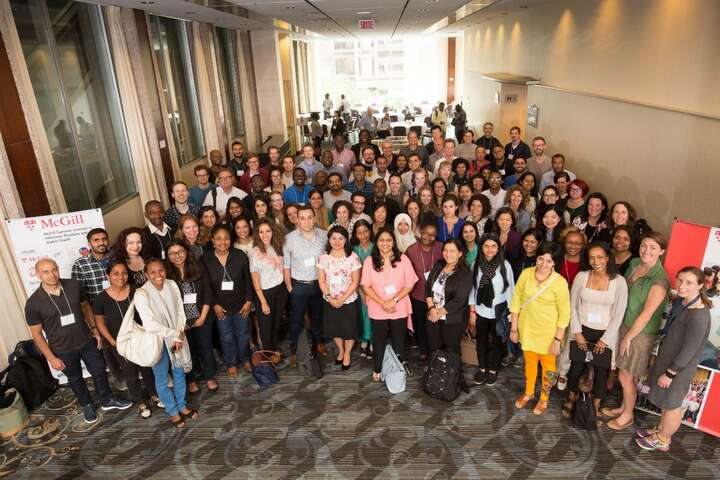
The University of McGill’s global health diagnostics course was held on the 12th-18th June in Montreal, Canada. As part of the McGill summer institute of Infectious disease and Global Health, participants included a range of medical professionals, academics, policy makers, NGO representatives, industrial product developers and even ex-TB patients, representing over 20 countries. Organisations represented include: WHO, MSF, FIND, PATH, Cephid, Alere, numerous leading universities and many more.
This year’s course was particularly topical following the release of the 20th WHO Model List of Essential Medicines (EML) which was published a week prior to the course. Included in this was a “recommendation that the WHO develop an Essential Diagnostics List (EDL). The WHO has begun to lay the ground for the preparation of the list, which will become an important contribution to Universal Health Coverage (UHC).” The course explored different strategies that policy makers will be using to prioritise which diagnostics should go on the EDL.
The course was mostly lead by panel discussions comprising an impressive array of expertise. The current diagnostic landscapes, unmet needs and priorities of numerous diseases including: TB, HIV, STIs, malaria, NTDs and numerous arboviruses were explored in impressive detail, given the relatively short duration of the course. This year, diagnostics for acute febrile illness and enteric diseases were hot topics especially with respects to administration of antibiotics and preventing AMR.
I found the discussion around “Are resource-limited settings ready for molecular diagnostics?” most valuable for my work. The panel generally agreed that the need for more sensitive testing for diseases such as TB, malaria and NTDs could only be met by molecular diagnostics. Furthermore, they acknowledged that molecular testing is crucial for the detection of drug-resistance markers. It was very useful to hear solutions to common barriers preventing molecular tests reaching the field e.g. cost. It was suggested that costs of molecular testing could be minimised through partnering with other disease programs to share the burden of overheads/maintenance, testing panels rather than individual assays and promoting manufacture of reagents in-country. Another issue with molecular testing (although perhaps a broader problem with medical plastics) is the accumulation of waste cartridges for incineration. With advances in medical grade bio-degradable plastics, there is potential to reduce this.
Overall, the course offered a fantastic opportunity to gain insights from and meet experts working in all aspects of the diagnostics pipeline and I would thoroughly recommend it to anyone in diagnostics. A more detailed review of the course can be found here.
Written by Vera Unwin, a PhD student currently working on developing diagnostic tools for malaria elimination settings. As part of her PhD she has worked on a STOPMiP project and has ongoing collaboration with industrial diagnostics company Epistem in Manchester, UK.
